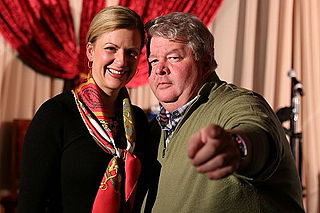A Quote by George Santayana
There is wisdom in turning as often as possible from the familiar to the unfamiliar: it keeps the mind nimble, it kills prejudice, and it fosters humor.
Related Quotes
Prejudice is of ready application in the emergency; it previously engages the mind in a steady course of wisdom and virtue, and does not leave the man hesitating in the moment of decision, skeptical, puzzled and unresolved. Prejudice renders a man's virtue his habit; and not a series of unconnected acts. Through past prejudice, his duty becomes part of his nature.
The world should have stopped, but it didn't. The world kept on going. How can the world just keep on going? An earthquake in India kills a thousand people, and the world keeps on going. A famine in China kills a million people, and the world keeps on going. The twin towers of the World Trade Center buckle and fall, and the world, the world keeps on going.
Semiotics is really interested in the questions like, what keeps you watching something, what keeps you - you know, what keeps you listening to a story on the radio? Like, what keeps you turning the pages in a book? What's the pleasure of it that's moving you forward, that's pulling you in and grabbing you and pulling you forward?
The mind, conditioned as it is by the past, always seeks to re-create what it knows and is familiar with. Even if it is painful, at least it is familiar. The mind always adheres to the known. The unknown is dangerous because it has no control over it. That's why the mind dislikes and ignores the present moment.







































